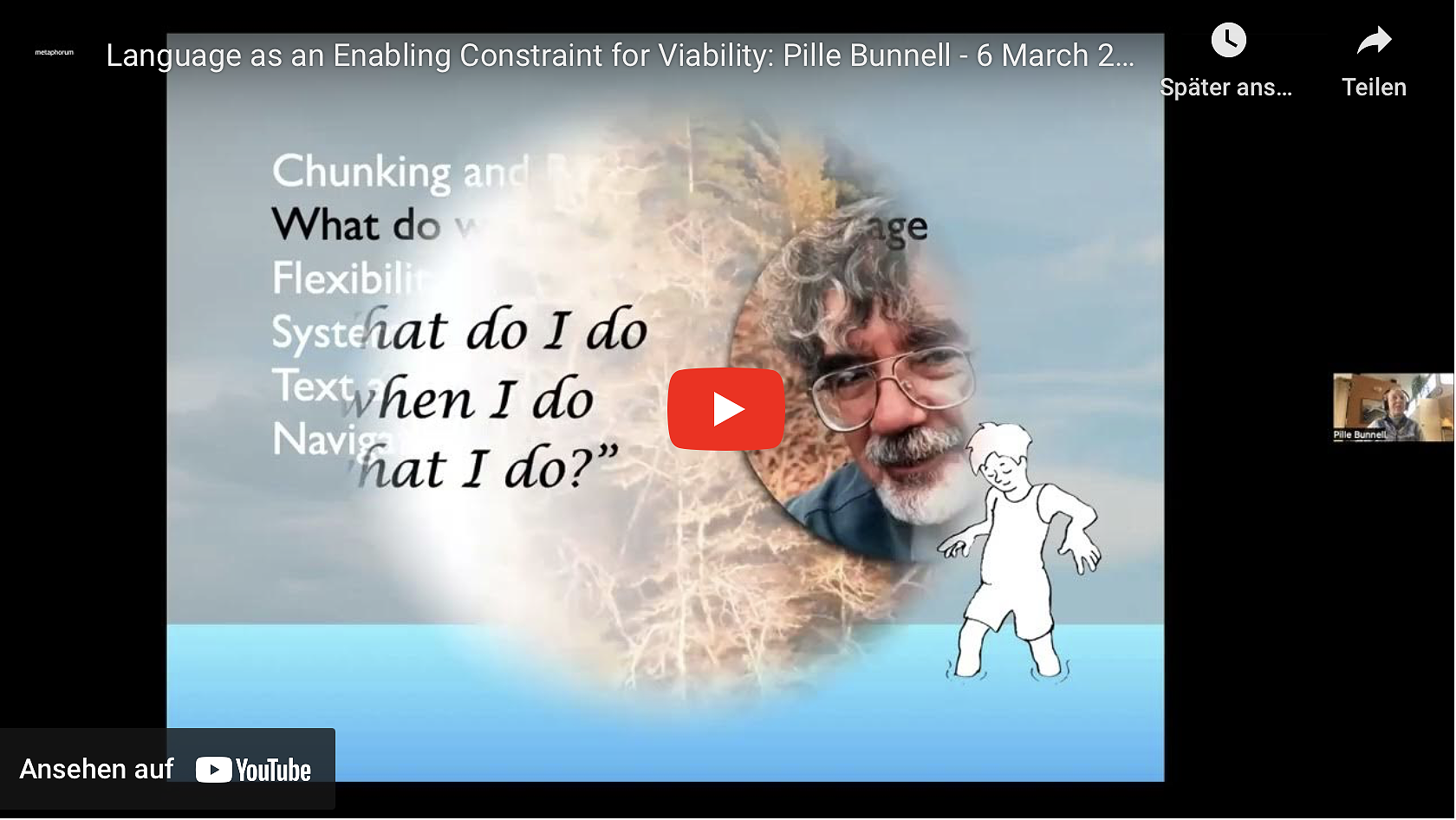
We are usually unaware that language imposes constraints on how we perceive, think and act, even as it is central to all that we do. What language enables is clearly apparent: all the cultures, technologies and designs we humans have created are grounded in our ability to coordinate with each other as we plan, organize, act and create, and evaluate what we have done. What language constrains and hides is far more difficult to see, yet there are clues in our experiences. I will delve into some of those clues to provide grounds for reflections and conversations concerning how our vocabulary biases what we can do and how we do it. What, for example, do some of our distinctions—such as for example “system”, “feedback”, “observer” and “recursion” enable us to see and think about while at the same time, what other thoughts and actions are made invisible or inaccessible by how we understand and use these words? This has consequences for viability and ethical living, as that requires that we be able to harmonize with both the obvious and the implicit, the visible and the hidden dimensions of our lives on this planet.
Speaker Bio
Pille has a background in ecology and ethology. After finishing her doctorate studies in Berkeley half a century ago, she began her professional life as a research associate at the University of British Columbia, followed by nearly two decades as an international environmental consultant. Leaving the consulting field, she taught postgraduate courses in systems methods and systems thinking at Royal Roads University for a further couple of decades and became active with several professional systems societies (ASC, ISSS and CybSoc).
